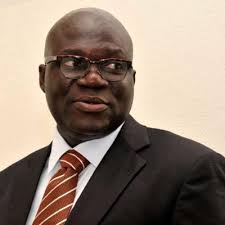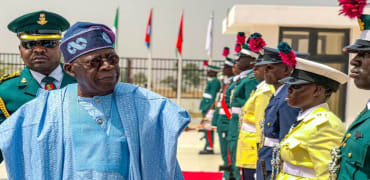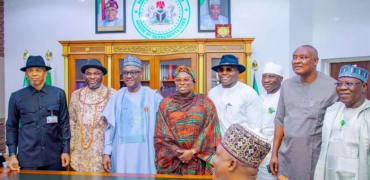Reuben Abati's Unprovoked Anti-Igbo Trade: Claims Yoruba Can't Buy Land In The South-East
Reuben Abati’s Unprovoked Anti-Igbo Tirade: Claims Yoruba Can't Buy Land in the South-East, Sparks Outrage
By Achimi Muktar
In a controversial outburst on Thursday, media commentator Reuben Abati stirred up outrage after claiming that no Yoruba person can purchase land in the South-East of Nigeria. The accusation was made during a morning segment on Arise TV, where Abati, without providing any evidence, peddled a long-debunked conspiracy theory about land transactions in Igboland.
False Allegations of Land Exclusion
Abati’s comments followed praise from Senate President Godswill Akpabio, who lauded the entrepreneurial spirit of the late Senator Ifeanyi Ubah, an Igbo lawmaker who passed away in July. While acknowledging the industriousness of the Igbo people, Abati quickly pivoted to a sweeping generalization, claiming that despite their business success across Nigeria, the Igbos allegedly refuse to sell land to outsiders, particularly Yoruba people.
Reuben Abati recounted a story he claimed to have heard from T.O.S. Benson, a late Nigerian minister, who supposedly had an Igbo wife and daughter but was denied the opportunity to buy land in the South-East because he was not Igbo.
“It is the irony of Nigeria that the same Igbos who are so industrious… you go there as a non-Igbo man to buy land, you’ll be told you don’t belong, even as an in-law,” Abati said during his broadcast, implying that Igbo people are generally hostile to people from other ethnic groups.
However, these claims were quickly debunked by reality. Prominent Yoruba businessmen like Adetayo Amusan, who owns Polo Mall in Enugu (the heartland of Igboland), and Mike Adenuga, the billionaire who has extensive land holdings in Abia State, contradict Abati’s narrative. Additionally, there are significant Yoruba communities living in major South-East cities, including Aba, Awka, and Enugu, with places like Ugwuaji even featuring a street named after a Yoruba man, Dayo Okunlola, as confirmed by Google Maps.
Abati’s Defiance on Air
Despite the glaring evidence disproving his claims, Abati remained defiant when questioned by his colleague, Ojy Okpe, on-air. Okpe read out a social media comment asking, “You cannot paint a whole tribe with one brush,” prompting Abati to loudly interrupt and insist, "Replay the tape!" He vehemently defended his position, rejecting any form of clarification.
Abati’s refusal to back down from his statement even when confronted with facts was evident when he angrily shouted at Okpe, dismissing her duty to seek clarification as "nonsense." The tense exchange, which saw Abati attempt to intimidate his colleague, left viewers questioning his unprofessional conduct.
“I was specific about what I said. Nobody should tell me any nonsense,” Abati blustered, asserting that if people disagreed, they must have their own "anthropological evidence" to challenge him.
Public Backlash and Calls for Accountability
Abati’s confrontational and unrepentant attitude didn’t sit well with many netizens, who expressed concern over how he might treat his younger colleagues off-air, given his brashness on live television. Social media erupted in backlash, with many accusing him of stirring ethnic division and disrespecting the Igbo people.
His behavior on air, combined with the baseless nature of his claims, prompted calls for greater accountability from media personalities. As the conversation concluded, Okpe calmly reiterated, “A whole tribe cannot be painted with one man’s experience,” a sentiment that resonated with many viewers who were appalled by Abati’s divisive rhetoric.
Abati’s tirade underscores the importance of responsible commentary, especially for high-profile media figures, whose words can influence public opinion and exacerbate ethnic tensions in an already polarized society.






















